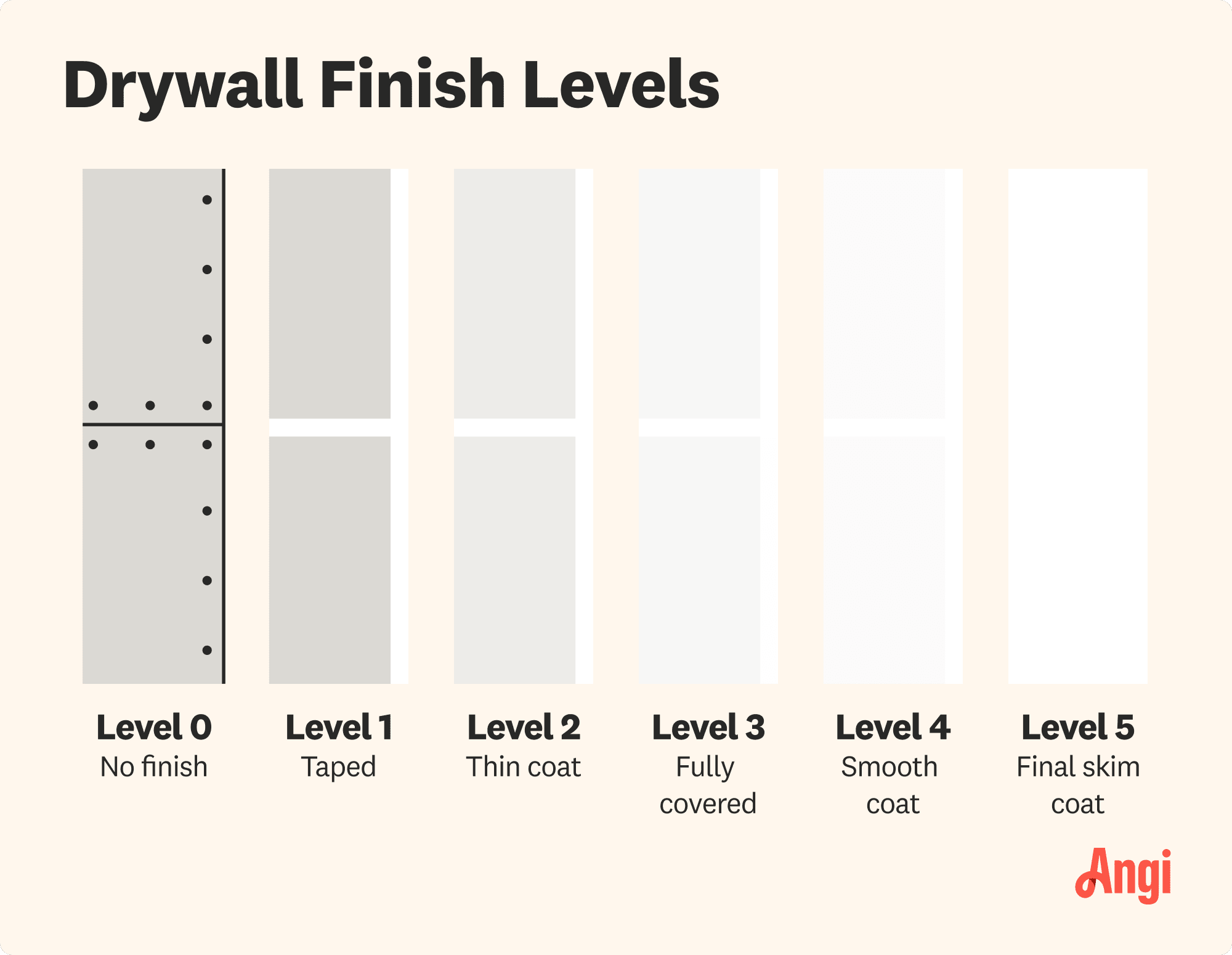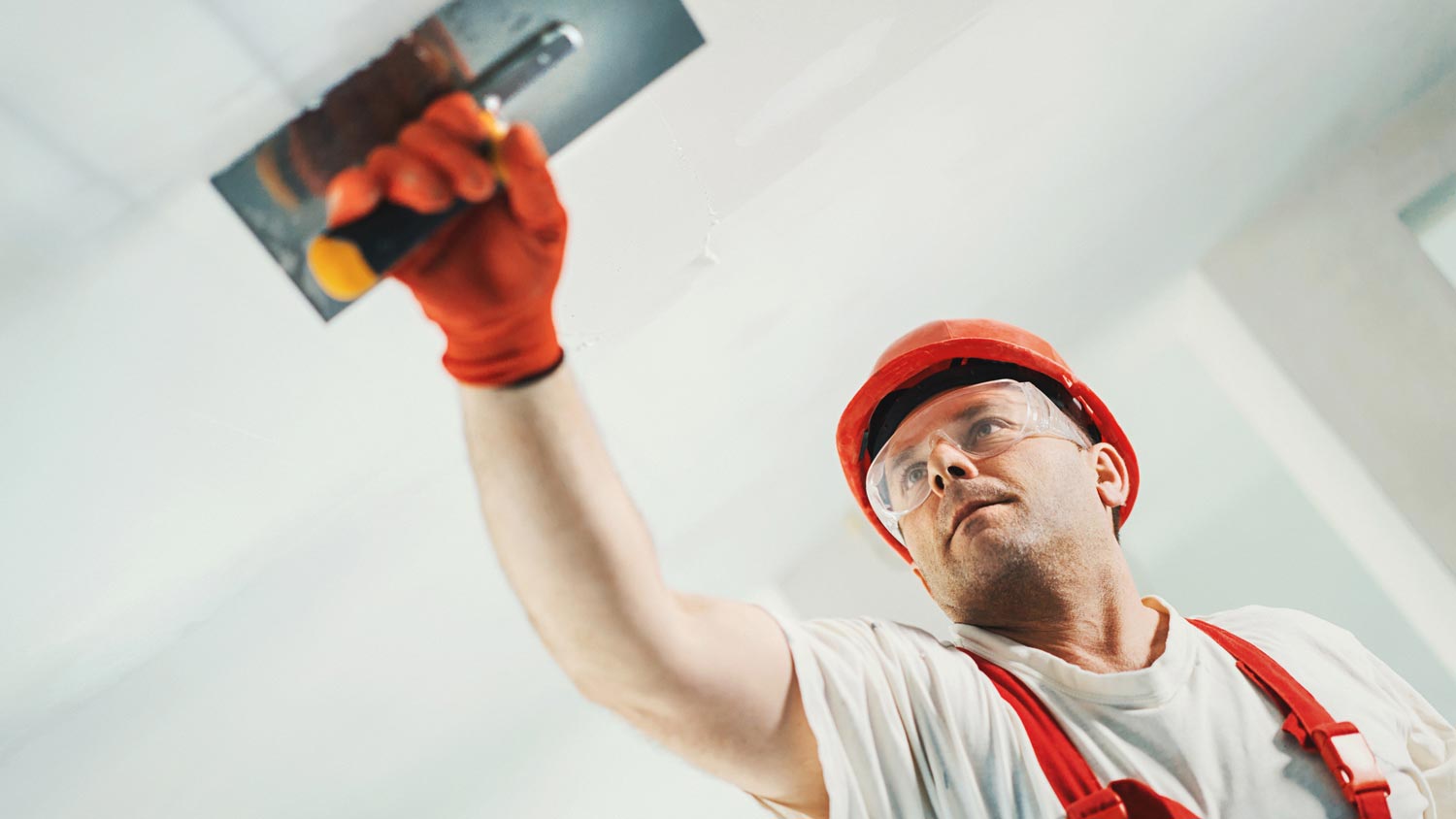
Whether you’re trying to keep noise in or out, soundproofing materials are the way to go. Use this guide to see how much it costs to soundproof a room.
Drywall service costs depend on your project and location. Check with a local pro for your specific job.
In Raleigh, drywall installation usually runs between $1.70 and $2.30 per square foot, which includes materials and labor.
Drywall jobs in Raleigh rarely require a separate permit unless you’re changing structural home elements.
Contractors often recommend mold-resistant panels due to North Carolina’s humid summers, costing $0.65 to $0.80 per square foot.
Drywall installation in Raleigh averages around $1,950, with a typical range of $1,144 to $2,967. The most significant cost factors include the size of the project, drywall thickness, and the finish level. Since Raleigh homes range from newer builds to decades-old properties, prep work and material needs can vary widely from one project to the next.
Drywall installation costs in Raleigh depend on a few key details, including the size of the space, the drywall thickness, and the finish level.
Whether you’re working on a small bathroom or a spacious living room, having an estimate of costs based on room size can help you plan your budget more effectively. Installing drywall in a small bathroom of around 100 square feet will cost $425 to $625, while for a large living room, it can range from $1,450 to $2,950.
Here’s a chart that gives the average costs for installing drywall—including materials and labor—in different common room sizes:
| Room Size in Square Feet | Average Cost |
|---|---|
| 100 (Small Bathroom) | $400–$650 |
| 200 (Small Bedroom) | $550–$1,000 |
| 300 (Large Bedroom) | $900–$1,550 |
| 400 (Small Living Room) | $1,100–$2,200 |
| 500 (Large Living Room) | $1,400–$2,700 |
| 600 (Large Space) | $1,700–$3,000 |
Standard drywall is the most affordable option, but more expensive types may be worth the additional investment in some scenarios.
| Drywall Type | Best Use | Average Cost of Materials per Square Foot |
|---|---|---|
| Moisture-resistant | Bathrooms, kitchen | $0.55–$0.75 |
| Mold-resistant | Extra-moist areas | $0.65–$0.80 |
| Fire-resistant | Garages, boiler rooms, commercial buildings | $0.60–$0.95 |
| Soundproof | Music rooms, kids’ rooms, primary bedrooms | $1.85–$3.00 |
| Eco-friendly | All rooms | $0.75–$0.95 |
Drywall thickness can sway your total price. If you’re on a minimal budget, you might want to opt for the thinnest quarter-inch panels. Three-eighths-inch and half-inch are the most common varieties. Soundproof and fire-resistant panels are usually five-eighths-inch thick. Drywall is sometimes available in 3/4" thicknesses for added soundproofing.
| Drywall Thickness (Inches) | Ideal Use Case | Average Cost per Panel |
|---|---|---|
| 1/4 | Curved areas or patches | $16 |
| 3/8 | Patches or repairs | $17 |
| 1/2 | Standard walls | $21 |
| 5/8 | Standard ceilings, fire-proofing | $22 |
| 3/4 | Sound-proofing, fire-proofing | $24 |

Your drywall installation costs will vary depending on what level of drywall finish you agree upon with your contractor.
| Level | Description | Average Cost (per Sq. Ft.) |
|---|---|---|
| 0 | Contractor hangs the drywall and no more | $0.80–$1.05 |
| 1 | Drywall has the seams sealed with tape and then covered with mud | $1–$2 |
| 2 | Has one coat of joint compound, typically to allow tiling on top | $1.30–$2.55 |
| 3 | Has two coats of joint compound for a smoother finish | $1.55–$3 |
| 4 | If you plan to use matte paint, pros recommend the application of three coats of joint compound | $1.75–$3.15 |
| 5 | A very high-quality finish which is the best option for enamel and gloss paint application. This includes three coats of joint compound and a full skim coat for a super-smooth appearance | $2–$3.50 |
Several factors affect what you’ll pay to hire a drywall installer in Raleigh. Labor costs are the biggest expense, but you’ll also want to account for possible permit fees and the cost of working with properly licensed and insured contractors.
In Raleigh, drywall installation runs between $1.70 and $2.30 per square foot, which includes materials and labor. Larger projects, vaulted ceilings, or higher-end finishes can increase your total costs, while small or straightforward installations often fall on the lower end of that scale.
Most drywall installations in Raleigh don’t require a separate permit unless the job involves changes to framing, insulation, or electrical systems. When a permit is needed, it’s issued through the City of Raleigh’s Development Services Department, with fees starting around $100 and increasing based on project scope.
North Carolina doesn’t require a drywall-specific license, but contractors handling structural work or large-scale projects must hold a state general contractor license. Installers who work under that license charge more due to compliance and insurance costs. Most reputable pros carry both liability and workers’ compensation coverage, which protects you from financial responsibility if an accident or property damage occurs during the job. The costs for pros to maintain these credentials are typically baked into your estimate.
North Carolina applies a 7% sales tax to drywall materials, but labor isn’t taxed. Contractors typically include material tax in their overall estimates, but it’s worth confirming that it’s applied correctly and not added to the labor portion of the bill as well.
Installing new drywall won’t dramatically boost a home’s value in Raleigh, but it can improve how a property shows to buyers. Many homes in the area have minor settling cracks and outdated finishes. Replacing worn or uneven walls gives interiors a smoother, more polished look, so it can make a home feel well cared for and sell faster in Raleigh’s active housing market.
Home is the most important place on earth, which is why Angi has helped more than 150 million homeowners transform their houses into homes they adore. To help homeowners with their next project, Angi provides readers with the most accurate cost data and upholds strict editorial standards. We survey real Angi customers about their project costs to develop the pricing data you see, so you can make the best decisions for you and your home. We pair this data with research from reputable sources, including the U.S. Bureau of Labor Statistics, academic journals, market studies, and interviews with industry experts—all to ensure our prices reflect real-world projects.
Want to help us improve our cost data? Send us a recent project quote to [email protected]. Quotes and personal information will not be shared publicly.
From average costs to expert advice, get all the answers you need to get your job done.

Whether you’re trying to keep noise in or out, soundproofing materials are the way to go. Use this guide to see how much it costs to soundproof a room.

Skim coating drywall is a great alternative to replacement, and is often more affordable. Use this guide to estimate the cost to skim coat walls in your home.

The cost to replace plaster with drywall can quickly add up. This guide will help you budget for this project and decide if it's worth the effort and cost.

Still debating drop ceiling versus drywall? Keep reading to learn how these two ceiling types differ and which option is right for your home.

Looking to secure your drywall? Find out the pros, cons, and key differences between coarse versus fine drywall screws with this guide.

If you’re considering the pros and cons of hanging drywall vertically, most drywallers install it that way. Learn the best applications for this installation method.